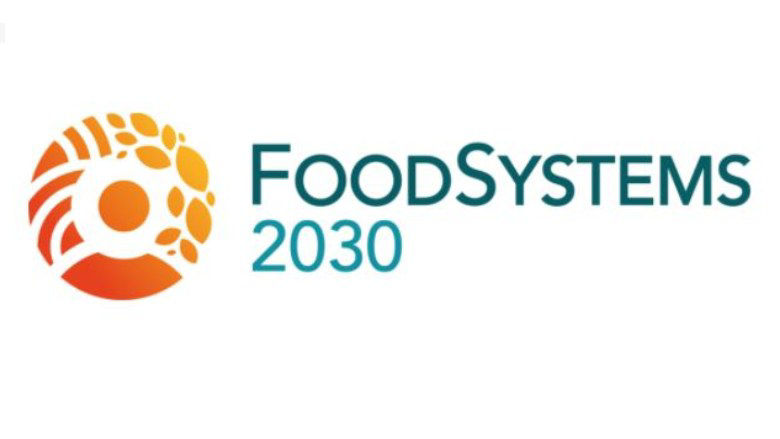For 18 years, improve agricultural production and marketing through productive alliances, connecting small rural producers to markets. Over 2,600 alliances have benefited 107,308 families. Following the completion of the second phase in 2023, 50,989 people were supported, with 97% maintaining or improving their alliances for at least two cycles. These producers experienced a 64% increase in average sales from better market access. The third phase has now launched, aiming to impact nearly 130,000 rural communities by focusing on food security, resilient agricultural practices, and enhancing women's participation.
In Brazil, a new program is helping 900,000 family farmers become more resilient to climate change and improve their livelihoods. It will also support achievements of Brazil’s Nationally Determined Contribution. Launched in 2024 with the government of Bahia, the first phase focuses on enhancing market access and agricultural productivity, while also providing reliable water services in rural areas. It will fund 800 projects for family farming, support 129 rural organizations in adopting better practices, and improve food security for 13,000 people. Future phases will expand to Pernambuco, promoting sustainable farming practices, and to Santa Catarina, aiming to boost climate resilience and market access for farmers.
In Ethiopia, between 2015 and 2024, a has helped increase productivity and commercialization for 2.5 million farmers, of which 37% are women. The project supported farmers by linking them to markets, and build their capacity in efficient water and crop management to implement climate change mitigation and adaptation. Farmers were able to increase their yield in crops and livestock by 19% and 52% respectively, with revenue rising by 96%. The project has also provided irrigation for over 62,000 hectares of land with beneficiaries reaching 128,000 households. Nearly one million jobs in rural areas were created as a result of the project interventions.
Launched in 2016, the has significantly increased rural incomes in Bihar by building on previous World Bank investments. It empowered over 6 million women through 500,000 Self Help Groups, improving livelihoods and financial access. By April 2023, members saved $47 million and accessed $2.4 billion in bank credit. Digital transactions reached $626 million, making the community platform a preferred option for various programs. The project also introduced innovative practices, including digital financial inclusion and women-managed kitchens (Didi ki Rasoi) and rural retail marts (Grameen Bazaars), with many initiatives recognized and replicated by the central government.
In Morocco, efforts are underway to modernize wholesale markets for fruits and vegetables in five regions. Food safety measures have been improved for 2,000 agribusinesses. Two innovation centers for agribusiness have begun operating, providing support for new ideas and practices. The program is also helping nearly 15,000 young agricultural entrepreneurs with technical and financial assistance. Additionally, there are initiatives to improve agricultural policies, focusing on nutrition and managing risks, as well as expanding support systems to protect farmers and agricultural workers.
Since 2010, has supported over 528,000 Rwandan farmers, half of whom are women, by enhancing agricultural production. Initiatives include developing over 10,600 hectares for marshland irrigation and improving 2,500 hectares of hillside irrigation. Matching grants helped 2,450 farmers adopt Farmer-Led Irrigation Development on 1,350 hectares. Soil conservation efforts covered 51,900 hectares. By 2024, greenhouse farming has surged, with 185 units installed, doubling yields of maize, rice, beans, and vegetables. Organized cooperatives improved market access, selling about 10 tons of vegetables weekly to premium markets, while $15 million in investments boosted livestock and crop insurance.
The Smallholder Commercialization and Agribusiness Development Project in Sierra Leone has integrated smallholder farmers into supply chains, transforming 106 grantees into profitable agribusinesses, including 17 companies and 42 producer organizations across six value chains. The project supported nearly 62,000 outgrowers, with 47% female participation, enhancing incomes and creating markets. During the COVID-19 pandemic, an Interactive Voice Response system provided essential agricultural information in four local languages. Additionally, 310 km of roads were rehabilitated, creating 8,714 jobs and reducing travel time by 58%. Four new bridges are being built, benefiting around 1.68 million people by improving access and facilitating trade.
The supports economic recovery by transforming smallholder agriculture. Funded by the European Union, it introduces innovative farming technologies and business models that improve value chains. Over 35,000 farm households have benefited from methods that reduce water and fertilizer use, increasing productivity and income. The project also provides matching grants to over 1,400 small and medium enterprises, fostering new products and innovations that connect with smallholders, boost exports, and create jobs. Overall, it has impacted more than 160,000 people, with over 40% being women.
In Yemen, a project improved agricultural infrastructure by restoring 608 hectares of farmland and upgrading 16.6 kilometers of rural roads. It built water harvesting structures and refurbished 17 wells, benefiting over 1 million people through 90 small-scale projects that enhanced food security. The initiative created nearly 22,000 temporary jobs, including 2,914 for women. It also rehabilitated 3,980 hectares of land and improved irrigation canals. A veterinary campaign vaccinated 11 million small animals and treated over 9 million. Additionally, more than 7,500 women received business training and stipends to help them earn income and improve food security.
Last Updated: Sep 30, 2024






